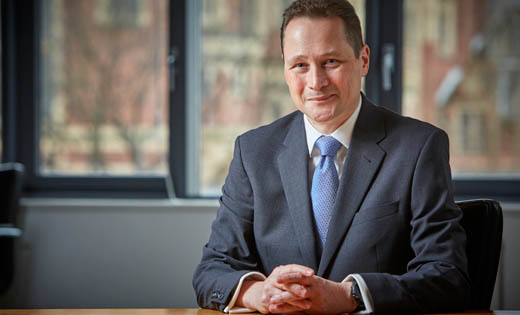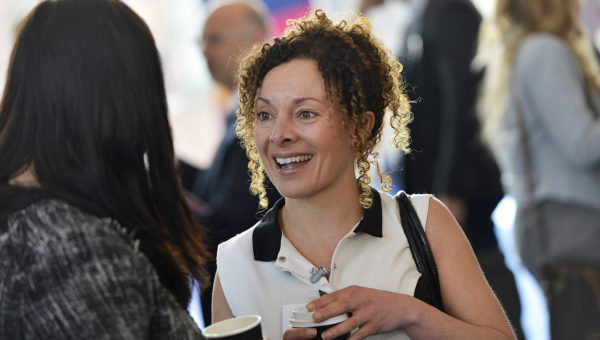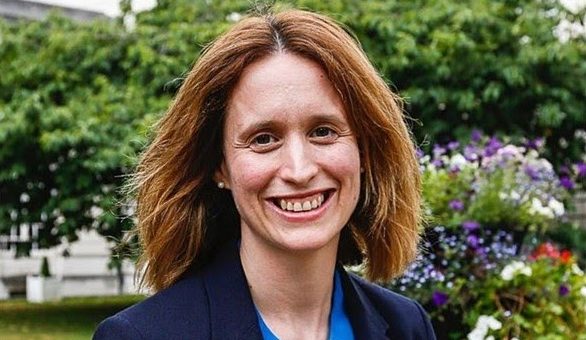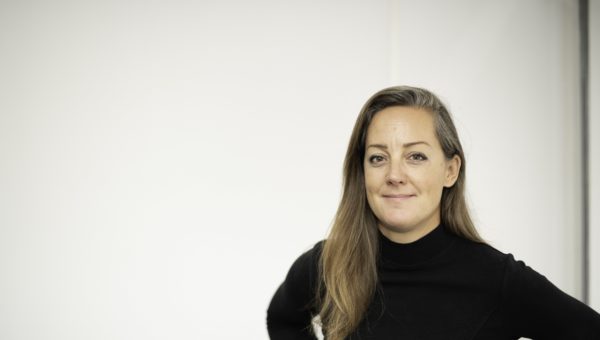The view from here – Professor Nick Plant, University of Leeds

In this series we ask key spokespeople from across the region and from our core sectors to share their insights.
Here, we speak to Nick Plant, Deputy Vice-Chancellor for Research and Innovation at the University of Leeds, about his framework for research excellence and the partnerships which will help to deliver that vision.
What does research excellence look like and how does your framework plan to achieve it?
You can’t measure excellence with a simple metric; you need to decide what you mean by excellence, and then create a culture and environment that allows our staff to push boundaries and which recognises their achievements and supports them to raise their ambition and drive innovation.
Academics need the freedom and confidence to make bold, sometimes risky choices to push those boundaries. We want to nurture new ideas and collaborations that spark something exciting and lead to transformative research; something nobody has done before and which makes a real difference to society.
People are at the heart of our University, and we must recruit and develop the best people, allowing them to flourish. I want Leeds to be a university without walls – open to collaboration and actively developing the ideas which will shape the future.
What partnerships and initiatives are in place to help deliver that vision?
Our region is blessed with an incredibly strong network of businesses, entrepreneurs and academics who support each other, sharing knowledge, insights and resources. I was delighted to introduce our new Mayor of West Yorkshire, Tracy Brabin, to some incredible young entrepreneurs on the BUILD programme recently on a tour of Nexus, who will undoubtedly make a big difference in the years to come. The Mayor was also able to meet some of our established members and see the amazing work they are doing, which truly is at the forefront of university and business collaboration.
Our involvement in MIT REAP (Massachusetts Institute of Technology Regional Entrepreneurship Acceleration Program) is a key initiative and is ensuring Leeds develops a strong vibrant entrepreneurial ecosystem. Nexus is a key part of this, and is so much more than a simple incubator space – it is a true community of innovators, generating new ideas and future ways of working. An example of this is our strategic partnership with KPMG, supporting the scale-up of some inspirational high growth businesses at Nexus.
We’re also working closely with Northern Gritstone, to ensure spin-out companies and start-ups across our region benefit from vital private capital funding to turn their ideas into reality.
How has the pandemic impacted on research and what is the University doing to help accelerate innovation in our region as we emerge from the crisis?
Perhaps unsurprisingly, research was severely impacted by the pandemic. But, I am particularly proud of how researchers pivoted their work, innovating to meet the immediate challenge of Covid-19. There were some incredible achievements including ventilator technology, understanding airborne transmission, and dealing with long-covid, with partnership working and collaboration at their core.
Emerging from the pandemic, we’ve focused on some of the societal challenges and inequalities that covid laid bare with a view to driving positive change. Professor Iyola Solanke for example is examining how covid and discrimination have combined to disproportionately negatively impact wellbeing and resilience in Black, Asian and Minority Ethnic families and communities. Her work will drive practice and policy change to help reduce these inequalities.
Professor Graham Farrell is supporting regional police forces by analysing data on the level and types of crime during lockdown. Not only will this show how criminal behaviour changed during the pandemic, but also help police forces anticipate future patterns as we emerge from the pandemic.
While dealing with the covid-19 pandemic has been a focus for the last 18 months, we must not forget the other great challenges that face our world such as climate change, health, and inequalities. Continuing our long-standing partnership with the Clothworkers Company, we are proud to launch the Institute of Textiles and Colour. Supporting the rich history of the textile industry in Leeds and Yorkshire, the institute will undertake cutting edge research, alongside an extensive undergraduate, Masters and CPD programme. Working with our industry partners, we will actively develop new technologies to digitise the industry and promote sustainable fashion, while creating the next generation of skilled workers.
What are you most looking forward to?
Being continually inspired by the brilliant business and academic minds we have here and the real differences they can make to the twin challenges we face around health – how to live long and healthy lives – and climate – how not to wreck the planet.
We’re extremely lucky to have Professor Piers Forster heading up the work of the Priestley International Centre for Climate here at the University. We also work very closely with the Anchors Network and the Leeds Climate Commission, developing our regional focus for global action programmes and initiatives.
I’m also delighted we’ve been joined by Dr Catherine Davies as Dean for Research Culture and Dr Amanda Bretman as Dean for Research Quality. We’re working together to further develop programmes and accelerate change to deliver a collaborative, diverse and inclusive environment at the University, which enables staff to be the best they can be.
Explore more insights from our ‘the view from here’ series:

The view from here – Richard Stubbs, CEO of the Yorkshire & Humber AHSN
We speak to Richard from the Yorkshire & Humber Academic Health Science Network about the new traction for innovation across the NHS, his passion for driving diversity in healthcare and his mission for our region to be the UK’s epicentre for life sciences.

The view from here – Melanie Ellyard, British Business Bank
We chat to Melanie, Senior Manager for Yorkshire, Humber and Tees Valley, UK Network for the British Business Bank about the current funding landscape for business in our region and what she sees should be our key priorities for future growth.



